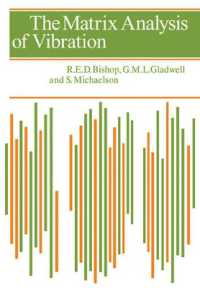- ホーム
- > 洋書
- > 英文書
- > Psychology
Full Description
The recent age of behaviorism all but ignored individual differences, but in this decade the study has emerged from relative dormancy with a new vitality, fueled by new concepts, technologies, statistics, and new viewpoints on old ideas that are moving us forward.







